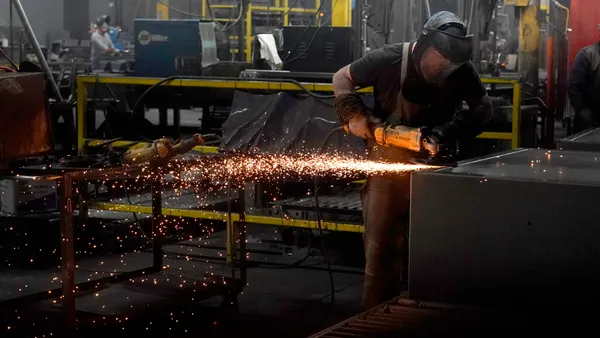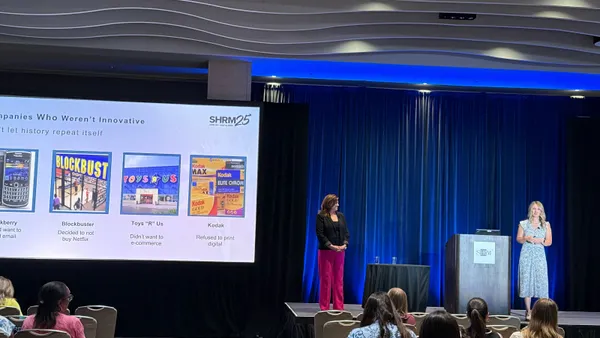Dive Brief:
- JPMorgan Chase announced Feb. 12 a five-year $75 million career readiness investment to prepare young people for the workforce. The funds, which will be distributed among 10 global cities, are part of the firm’s $350 million initiative New Skills at Work.
- The cities selected, Denver, and nine others to be announced, are formulating partnerships between local school systems, higher education, employers and government entities to improve high-quality career pathways including those to the technology field, according to the firm. "Now, more than ever, businesses, government, and communities must work together to prepare young people for the future of work so they have a better shot at building a good financial life for themselves and their families," Jamie Dimon, chairman and CEO of JPMorgan Chase, said in a statement.
- The investment announcement came about a month after the firm reported a profit of $8.52 billion for the quarter ending Dec. 31, 2019, an increase of 21% over the previous year, as reported by HR Dive’s sister publication Banking Dive. "We continue to make large investments in technology, including AI, cloud, digital and payments, as well as other investments in innovation, talent, security and risk controls," Dimon said in January.
Dive Insight:
Both talent and talent pros will need to keep pace as the tech industry expands. However, that may be a challenge.
A June 2019 survey from staffing firm Robert Half found that almost 90% of hiring managers say that it’s challenging to find qualified professionals in tech; about 95% said they expect to turn to project-based hires to meet technical needs. In 2018, there were 3.8 million tech job postings, while the population of software developers, the most common tech job, reached just 1.5 million, according to stats from tech trade group CompTIA.
JPMorgan Chase’s career readiness initiative seeks to train youth or Gen Z members to build a talent pipeline to bridge technology gaps. Gen Z, the newest generation in the workforce, will bring a new set of behaviors and preferences affecting the future of work. Gen Z employees will be a workplace's "resident tech experts," according to a January Nintex report; "They know it, and so do their employers, who proactively adopt technology and tools suggested by Gen Z."
As technology continues to change the nature of the work, employers are adopting tools including AI that can take over some work. In turn, hybrid jobs that require a blend of technical and soft skills are on the rise.
Gen Z and millennial workers are willing to remain at a job long term, according to a Zapier study released in January 2019, which will be beneficial in navigating technological changes and developing future leaders. The survey found that millennials and Gen Z members plan to stay in their jobs 10 years and six years, respectively. Approximately 62% of millennials and 49% or Gen Zers surveyed said they have direct reports.














